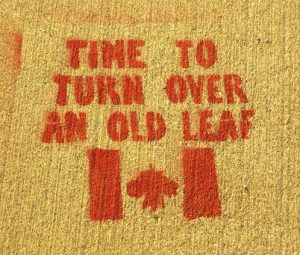For my Mid-term evaluation the three posts I have chosen are:
I believe that these posts best interact with the curriculum and readings, and have allowed me to dive deeper into the content of the course and think critically.
For my Mid-term evaluation the three posts I have chosen are:
I believe that these posts best interact with the curriculum and readings, and have allowed me to dive deeper into the content of the course and think critically.
I believe that the reason that Carlson and Wickwire argue that post-colonial or pre-contact Indigenous narratives are generally discarded is tied heavily to the prevailing stories in North American history and literature of how this land “came to be” by colonial standards. For the purpose of this post, I will be primarily focusing on Canadian narratives, as is the purpose of the course, as well as an area I am more knowledgeable on, due to being Canadian. However, it is obvious that we see this rhetoric throughout many colonized countries and history. So why is that?

The term nationalism sparks conflicting ideas, especially to Canadians. We can view our neighbors to the south and see a white man roaming the halls of Congress, dressed in a buffalo skin hat, and agree that this toxic form of nationalism is egregious. We can sit and say, “never in Canada”, or “we don’t think like that”, but is that really the truth? An article written by Global News in 2018 looked to compare nationalism in the States to nationalism here in Canada. Jordan Press writes that, “Canadians appear to have constructed their view of nationalism on the idea of feeling connected to our country and ensuring that others feel connected as well – even as we watch the term pilloried globally” (Press, Global News) so what does this Canadian version of nationalism have to do with the discarding of post-colonial narratives?
It is a common trope across Canadian narratives that we have a very romanticized view of country and land. As shown extensively in Susan Moodie’s novel, Roughing it in the Bush, we can see the foreground being laid for the stories written for years to come. Moodie often ties her ideations back to the land, extoling Canada as a myth-like entity. Things are different here, things are better here. Through the beginning of these narratives, we have stagnated Indigenous ones. Here we can continue tropes of “The Nobel Savage” and place Indigenous narratives in one place and time. We have a tendency to situate Indigenous narratives around the colonization of Canada. Keith Thor Carlson writes, “we must begin shifting our focus away from a binary study of Native-newcomer relations (which inevitably assumes that non-Natives are the most important thing in Aboriginal people’s lives and history) to one that recognizes the plurality of Indigenous voices” (Carlson, 64) pointing us once more back to the reason why we have a tendency discard certain narratives from academic schools. Through further study and writers such as Carlson, Wickwire, Robinson and King, we can begin to understand that these narratives, are not static, and do not revolve around us (colonial Canadians), but it is hard to undo years of hearing and learning otherwise.
Works Cited
Britannica, The Editors of Encyclopaedia. “Noble savage”. Encyclopedia Britannica, 24 Apr. 2019, https://www.britannica.com/art/noble-savage. Accessed 7 March 2021.
Carlson, Keith Thor. Orality and Literacy-. Ed. Carlson, Kristina Fagna, & Natalia Khamemko-Frieson. Toronto: Uof Toronto P, 2011. 43-72.
Moodie, Susanna. Roughing it in the Bush. Project Gutenburg, 18 January 2004. Web. 9 Apr 2013.
Press, Jordan. “Canadians have different concept of nationalism than U.S., surveys show”. Global News, 9 Dec. 2019. https://globalnews.ca/news/4745341/canada-nationalism-surveys/